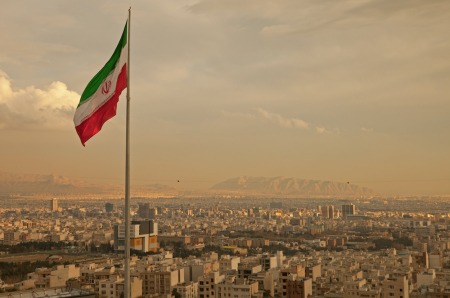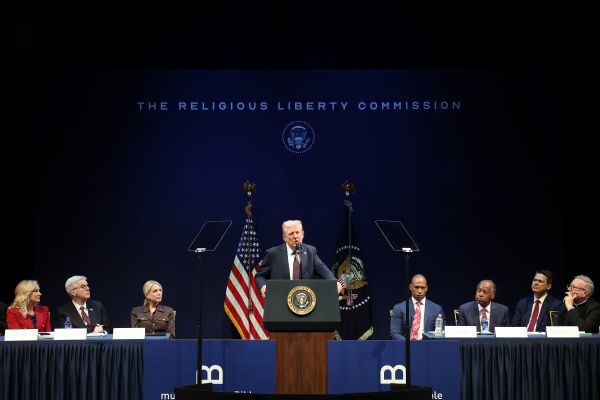Iran releases pastor imprisoned for 'evangelizing,' promoting 'Zionist Christianity'

Pastor Yousef Nadarkhani, once sentenced to death in Iran for apostasy, was the third Christian convert recently released from prison as part of the government’s annual amnesty marking the anniversary of the 1979 revolution.
Originally sentenced to death in 2010 for leaving Islam, Nadarkhani was freed on Feb. 26, following the pardon and release earlier in the month of Hadi Rahimi and Zaman Fadaei, religious freedom advocates said. While welcoming the releases, they noted that those released had already served significant portions of their sentences in cases marred by legal irregularities even by Iranian standards.
“Their pardon hardly addresses the injustice of the original sentencing and suffering that the men and their families endured,” said a specialist on Iran with Middle East Concern (MEC) on condition of anonymity. “But we are glad for their sakes that they are free and with their families again.”
Nadarkhani had been acquitted of apostasy in September 2012 but was found guilty of a lesser charge of evangelizing and sentenced to three years in prison.
He was arrested again, along with his wife, in May 2016 when agents with the Ministry of Intelligence began raiding Christian homes and house churches in Rasht. In July 2016, the Revolutionary Court in Rasht charged Nadarkhani with “crimes against national security” and accused him of being a Zionist.

Nadarkhani, his wife and two other Christians were found guilty of acting against national security, propagating house churches and promoting Zionist Christianity in June 2017 and sentenced to 10 years each in prison. Nadarkhani was also sentenced to two years’ exile in Nik Shahr.
Nadarkhani remained free until officials arrested him at his home in July 2018 and took him to Evin Prison to begin serving his sentence. Security officers assaulted Nadarkhani and his son during the arrest, according to MEC and other advocacy groups. Upon judicial review of his case, Nadarkhani’s sentence was later reduced to six years.
Two prisoner releases preceded Nadarkani’s. Hadi Rahimi was released from Evin Prison on Feb. 15, following that of Zaman Fadaei from the same notorious prison on Feb. 8.
Rahimi was arrested in February 2020 with three other members of a house church in Rasht and released three months later on a bail bond of 200 million toman (about $12,000). In August 2020, Rahimi was sentenced to four years in prison for “acting against national security” and “spreading ‘Zionist’ Christianity” for attending a house church.
The other Christians arrested in the raid received sentences of between two and five years. A month later, Rahimi’s sentence was upheld on appeal, and on Jan. 9, 2022, he turned himself in to begin his sentence.
Fadaei, another Christian convert from Islam, was released on Feb. 8 also in recognition of the revolution’s anniversary. As with Rahimi, Fadaei’s pardon was approved by Supreme Leader Ali Khamenei as part of the amnesty freeing “tens of thousands” of prisoners, according to state news agency IRNA.
Fadaei was well known for raising the ire of the Iranian government for following Christ. In November 2020, he was flogged for drinking wine during a Communion service, an 80-lash sentence originally issued in 2017. In June of that year, he was also sentenced to 10 years in prison for “acting against national security by propagating house churches and promoting Zionist Christianity,” according to advocacy groups.
Fadaei’s sentence was later reduced to six years in June 2020 after judicial appeal.
‘Enemy of the State’
In light of recent civil unrest in Iran, there has been much speculation about who would be released as part of the amnesty tradition marking the Feb. 11, 1979, revolution. With Iranian state media reporting the release of 10,000 prisoners, religious freedom advocates in Iran were still tracking information on other releases.
The February pardons were part of a larger game of musical chairs the Iranian state plays with prisoners of conscience, including religious conscience. On Jan. 28, authorities released Anahita Khademi, a Christian convert, on a bail bond of 180 million toman (about $4,000) in connection with various charges, including distributing “propaganda against the system” and “disturbing public opinion.”
Khademi, wife of well-known Pastor Abdolreza Haghnejad, on Jan. 3 was ordered to appear at intelligence offices in Bandar Azali, where she was questioned, arrested and later transferred to Lakan Prison in Rasht. Her husband remains in Lakan Prison in Rasht serving a six-year prison term sentence for “acting against the security of the country by forming and propagating Christianity outside the church and in the house church and giving information to the enemies of Islam.”
Charges against Pastor Haghnejad stemming from his arrest in 2014 had been overturned, but in January 2022 the judicial leadership of a court in Karaj nullified the appeal, declared him an enemy of the state and reinstated the six-year sentence.
Iran ranked eighth on Christian support organization Open Doors’ 2023 World Watch List (WWL) of the 50 countries where it is most difficult to be a Christian. During the past few years, the government of Iran has severely cracked down on house churches, but the WWL report states, “despite great oppression, the Islamic Republic of Iran has seen phenomenal growth in its underground church movement.”
“Christian gatherings in private homes have been denounced as ‘illegal groups’ and acts ‘against national security,’ while many churches continue to be closed,” the report states. “Converts from Islam to Christianity bear the brunt of religious freedom violations, carried out by the government in particular, which sees these Iranian Christians as an attempt by Western countries to undermine the Islamic regime. Leaders of Christian convert groups, as well as members of other denominational backgrounds who support them, have been arrested, prosecuted and received long prison sentences for ‘crimes against national security.’”
Morning Star News is the only independent news service focusing exclusively on the persecution of Christians. The nonprofit's mission is to provide complete, reliable, even-handed news in order to empower those in the free world to help persecuted Christians, and to encourage persecuted Christians by informing them that they are not alone in their suffering.





















